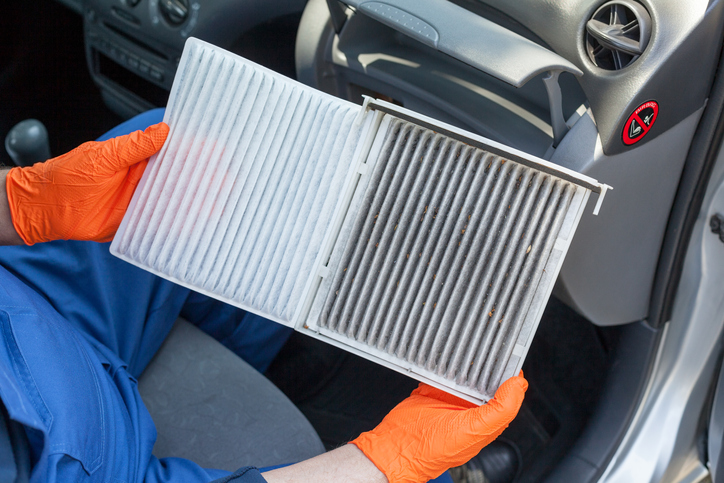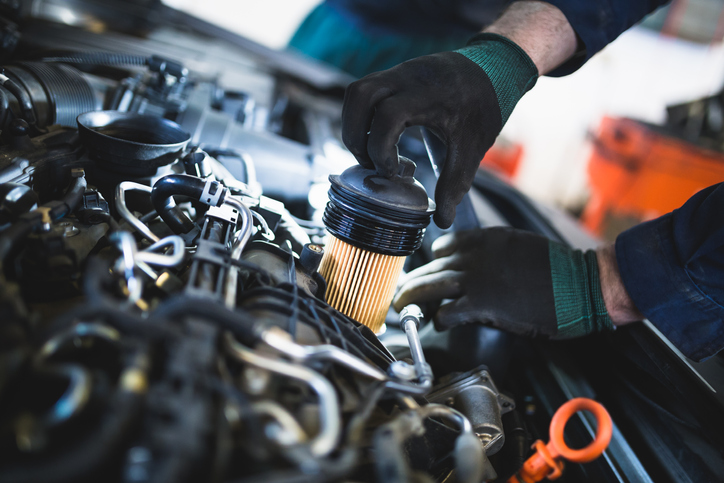
Checking a car’s air filters is an important part of routine car maintenance—right alongside rotating the tires, checking the oil, and topping up the washer fuild. On average, air filters will be changed every 19,000 to 24, 000 km, depending on the car owner’s manual and on the type of air filter in question Why? There are a few reasons why a car’s air filters are important, and why keeping them in good shape also has a positive effect on the longevity of other car parts too.
What should you know about air filters? Here’s a quick intro to get you started!
Engine Air Filters
Within most cars, you’ll find two different air filters: one for the engine, and one for the cabin. The engine filter, as its name suggests, is designed to prevent any debris from getting to the engine. Because oxygen is needed as part of the combustion process that keeps cars moving, engines need to receive a steady supply of fresh air. Of course, if this air is filled with dust, particles, or other contaminants, then over time the engine might become clogged and break down. An air filter helps to prevent that from happening by catching debris before it reaches the engine.
Graduates of automotive college know that air filters can be made from different materials. For example, many air filters are made from paper. These are effective and affordable. However, once these filters have become filled with debris, they will need to be replaced rather than cleaned.
Other materials that make good air filters include cotton and foam. Both cotton and foam filters are often oiled to help them trap and hold onto debris. Foam filters will eventually need to be replaced, but cotton filters have the potential to last for the entire life of the car. As a result, when it comes to the filters you’ll see during your career, paper ones will be the most common, followed by cotton air filters. Foam filters are a little rarer, but you might see them from time to time. While metal filters also exist, these are the least common type of air filter around.
Cabin Air Filters
Cabin filters are all about keeping the air inside the car that passengers breathe nice and clean. These filters help to keep out dust, some pollutants, and other particles that might be floating around. It is also possible to get an activated carbon cabin air filter, which can filter out fumes and eliminate odours as well as filter out all the other debris that a regular cabin filter can handle. While they tend to be more expensive and need to be replaced more often, drivers travelling behind a garbage truck or passing by fields freshly fertilized with manure might be especially thankful that they sprang for this added luxury.

Why Air Filters Need to Be Changed or Cleaned by Grads of Mechanic College
Because air filters catch and keep debris, eventually they will accumulate buildup, necessitating a change or that the filter be cleaned. If, after graduating from mechanic school, you encounter a client who is hesitant about having their air filters cleaned or changed, it could be a good idea to let them know why doing so is important.
For starters, a clogged engine air filter means that the engine has to work harder to get the air it needs to function. That in turn can negatively impact performance and fuel efficiency. When it comes to cabin filters, clogs and blockages can have a negative impact on the A/C. In some cases, an old air filter might even let mold spores through, which could then cause mold and mildew to grow and lead to some musty smells in the car. Overall, the biggest problem with bad air filter maintenance is that it can negatively impact the systems that take the air after they have passed through the filter.

Are you interested in learning more about an automotive mechanic career?
Contact CATI for information about our courses.
